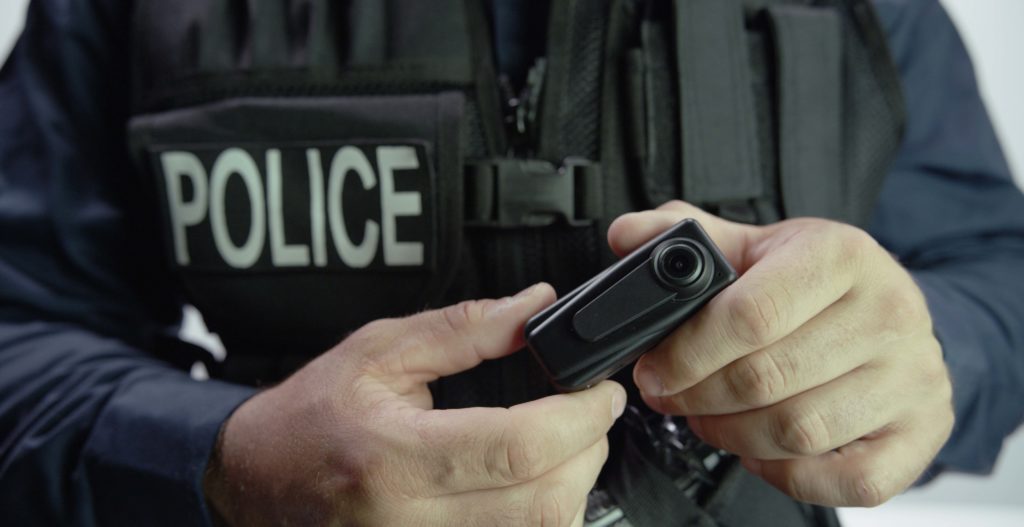“A picture is worth a thousand words,” so goes the old saying. At one time an “eye-witness” testimony was nearly incontrovertible evidence in court. It’s been found, however, that what we see is filtered by our minds based on our own preconceived notions and prejudices. When that memory is played back, especially over time, we tend to lose objectivity. The memory, although based on an event we witnessed, will take on different meanings than the original event may have presented.
So it is, that police officers have made use of dash cameras to support traffic stops with more objective evidence as a backup to their narrative. With miniaturization has come an additional use for cameras, and now police departments can place a recording device on front of the officer’s uniform.
Las Vegas Metropolitan Police Department (LVMPD) hopes to have all uniformed officers equipped with a body cam by the end of the year. There are currently about 900 officers with body cams.
University Studies
A couple of recent studies have found that complaints against police officers are significantly reduced when body cams are used. Cambridge University performed a study of British and U.S. police, and found a 93 percent decrease in the number of complaints against officers when they were wearing body cams.
Arizona State University (ASU) also studied use of body cams by the Phoenix Police Department. The reductions in complaints were closer to 60 percent in the ASU study, but similar significant reductions in complaints against police officers were documented. The ASU study also found that police behavior changes when cameras are employed.
National Attention to Police Activities
Especially when police contacts get confrontational, having the camera backup acts as an important means of holding police accountable for their actions.
LVMPD Undersheriff Kevin McMahill addressed these issues: “You see the national-level issues affecting policing today,” he said, referencing civil unrest over the use of deadly force by police in other cities — most recently in Charlotte, North Carolina. “We will be the first large major metropolitan police department in the country that has body-worn cameras deployed to all their uniformed personnel.”
Police Unions Approve the Deployment
Contracts just approved on Monday September 26, 2016, with the Las Vegas Police Protective Association, the Las Vegas Police Managers and Supervisors Association, have set the stage for LVMPD to increase the number of cameras in use from the current 900 to 1,800. These will go to all uniformed officers, including K-9 and SWAT officers. The airport unit of LVMPD will receive cameras at a later time.
Metro Policy Allows Public to Request Body-Cam Videos
With this implementation, LVMPD will provide viewing of videos to the public on a case-by-case basis. Members of the public and media will need to contact LVMPD to seek permission to view videos and then set an appointment to view them in a room provided by LVMPD. At least one LVMPD employee will be present during the viewings and cell phones will not be allowed in the room.
Different rules are in place for different types of viewers. Metro has divided potential viewers into three groups: general public, members of the media, and involved parties. Videos will be available for 45 days, unless it is part of an investigation. Felony arrests will be kept for 2 years. Criminal and internal investigations won’t be released until the case is closed.
Ticket Busters Can Help
Whether you are stopped by an officer wearing a camera or not, we can help if you have received a ticket or have encountered the police in other situations. Call us to discuss your situation at (702) 666-6666.



